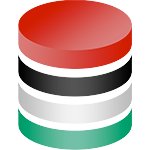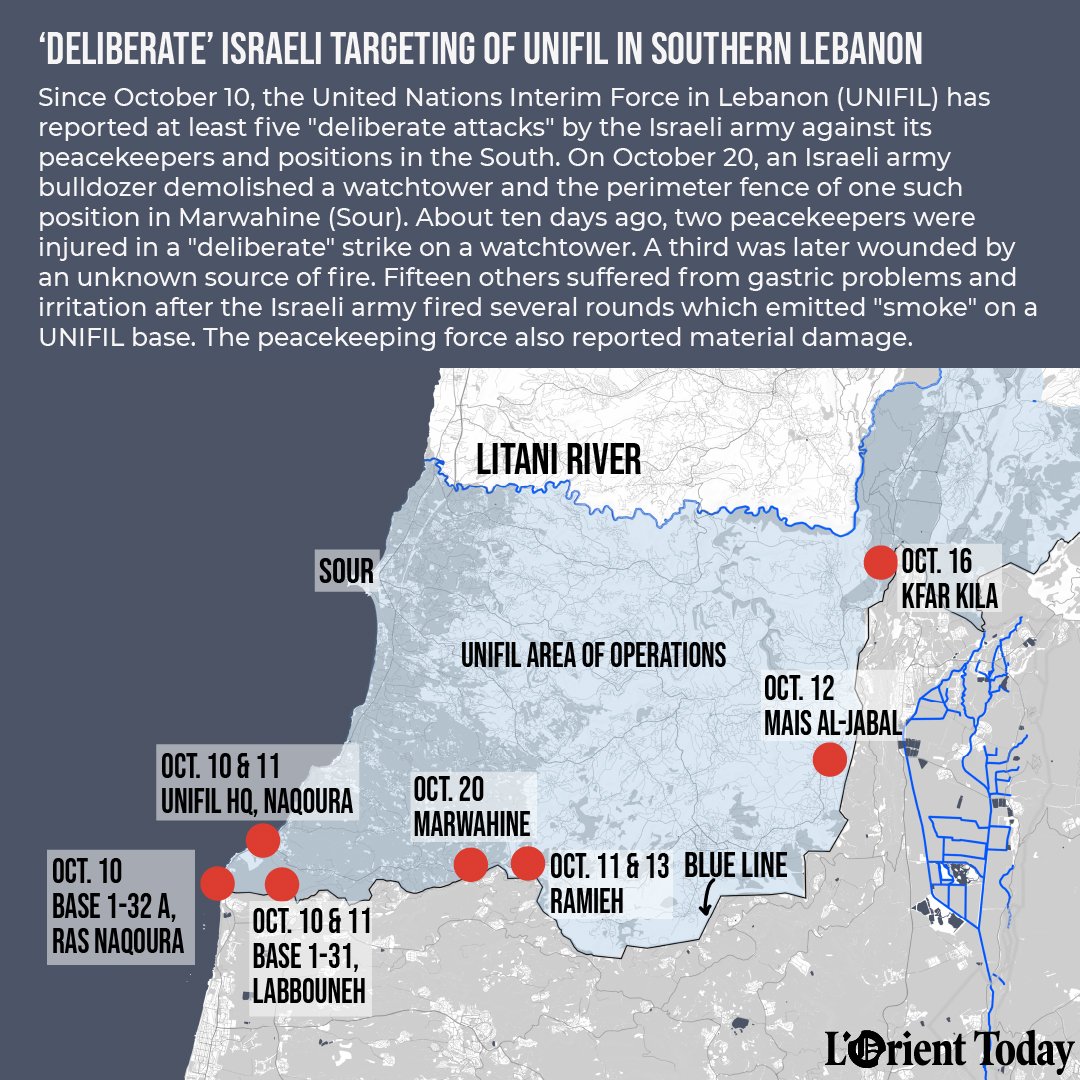
TikTok Genocide

UNIFIL “Blue Helmets” remain committed to their Peacekeeping mandate in southern Lebanon
Original Social Media Post
"“We are all doing everything to keep ourselves motivated” Despite immense challenges, @UNIFIL_ “Blue Helmets” remain committed to their @UNPeacekeeping mandate in southern #Lebanon Follow our coverage of the crisis ⤵️ https://news.un.org/en/tags/lebanon" - Source
Event Notes
Attacks on UNIFIL in LebanonUNIFIL has been active in south Lebanon since 1978, primarily to monitor ceasefires and facilitate humanitarian access.Any deliberate attack on the UN personnel and property is a grave violation of international humanitarian law and of Resolution 1701.
Israel has accused UNIFIL of failing to enforce Resolution 1701, which calls for a ceasefire and Hezbollah's disarmament. Israeli officials argue UNIFIL has not adequately restrained Hezbollah, while experts counter that both sides have violated the resolution's terms. Israeli leaders have expressed frustrations, calling UNIFIL a “human shield” for Hezbollah. Prime Minister Netanyahu has called for UNIFIL's withdrawal, stating it enables Hezbollah’s operations.
Israeli rhetoric increasingly portrays UNIFIL as colluding with Hezbollah, feeding into a “dangerous and inaccurate” anti-UN narrative. This perception may impact future peacekeeping stability in the region. While heavy Israeli airstrikes have devastated southern Lebanon, flattening towns, killing over 2,574 people, and injuring more than 12,000 as of October.
A leaked report shows Israel’s use of incendiary white phosphorus near UNIFIL bases, injuring 15 peacekeepers. Other reported incidents include direct fire on UNIFIL positions, demolitions of observation towers, and forcible entry into UNIFIL compounds. Rights groups warn that Israel's actions could amount to war crimes. UNIFIL has been active in south Lebanon since 1978, primarily to monitor ceasefires and facilitate humanitarian access.
Chronology
Chronology of important events from October 1 to October 20, 2024, regarding the incidents involving Israeli Defense Forces (IDF) and the United Nations Interim Force in Lebanon (UNIFIL)
October 1, 2024
Israel begins an invasion of Southern Lebanon, accompanied by airstrikes targeting locations throughout Lebanon. UNIFIL Non-Intervention: UNIFIL forces do not intervene and remain in their positions.
October 4, 2024
IDF Orders Irish UNIFIL Withdrawal: IDF requests Irish UNIFIL personnel to vacate a position; both UNIFIL representatives and the Irish government decline.
October 9, 2024
Disabling of UN Surveillance Systems: IDF soldiers reportedly disable video surveillance, lighting systems, and a radio repeater at UNIFIL bases UNP 1-31 and UNP 1-32A in South Lebanon through small arms fire.
October 10, 2024
IDF Fires on UNIFIL Positions: Israeli troops open fire on three UNIFIL positions, including the main base in Naqoura. Two Indonesian peacekeepers are injured when an Israeli tank fires on an observation tower. IDF demands the immediate withdrawal of all UNIFIL personnel within 5 km of the Israel-Lebanon border; contributing countries decline the request.
October 11, 2024
IDF attacks the Naqoura base again, injuring two Sri Lankan peacekeepers and damaging the perimeter wall. UNIFIL bases suffer heavy damage during clashes between IDF and Hezbollah. International Condemnation: France, Italy, and Spain release a joint statement condemning the attacks; the U.S. government calls on Israel to cease attacks on UNIFIL bases. UN Response: The United Nations terms the incident a "serious development."
October 12, 2024
Another Indonesian peacekeeper is injured by Israeli fire. Condemnation by 44 Nations: Poland, joined by 43 other countries, condemns Israel’s attacks on UNIFIL, calling for a halt to attacks and protections for UN personnel. Countries include the UK, Germany, France, Italy, India, and others.
October 13, 2024
Two IDF Merkava tanks reportedly breach a UNIFIL position, destroying the gate and staying for 45 minutes despite objections. Within an hour after the tanks depart, white phosphorus munitions are fired within 100 meters of the base, injuring 15 peacekeepers. Further International Condemnation: 40 countries issue a joint statement condemning the IDF's actions against UNIFIL personnel and positions.
October 18
Peacekeepers in Meiss ej Jebel ran out of water after weeks without resupply. Access to positions near the Blue Line has been tough. While most positions have enough food and water for over 10 days, this one hadn’t received supplies since 29 Sept due to blocked roads. After delays from clearing the roads due to active fighting and warnings from the IDF of military activities, the position was finally resupplied on October 18 with food, water and essentials, allowing peacekeepers to continue their work.
October 20, 2024
Attack on UNIFIL Base in Marwahin: IDF attacks a UNIFIL base in Marwahin, demolishing an observation tower and perimeter fence with a bulldozer.
October 22, 2024
On 22 October, peacekeepers on duty at a permanent observation post near Dhayra were observing IDF soldiers conducting house clearing operations nearby. Upon realizing they were being observed, the IDF soldiers fired at the post. The duty guards withdrew to avoid being shot.
Unifil statement :* "The IDF has repeatedly demanded that UNIFIL vacate its positions along the Blue Line and has deliberately damaged camera, lighting, and communications equipment at some of these positions. Despite the pressure being exerted on the mission and our troop-contributing countries, peacekeepers remain in position and on task. We will continue to undertake our mandated tasks to monitor and report. We remind the IDF and all actors of their obligations to ensure the safety and security of UN personnel and property. Any deliberate attack on them is a grave violation of international humanitarian law and of Resolution 1701."*
November 7, 2024
A UNIFIL convoy bringing newly-arrived peacekeepers to south Lebanon was passing Saida when a drone strike occurred nearby. Five peacekeepers were lightly injured and treated by the Lebanese Red Cross on the spot. They will continue to their posts. The Lebanese Army also confirmed three of its soldiers at the nearby checkpoint were injured.
The details for each video come from social media. None of it has been verified.
